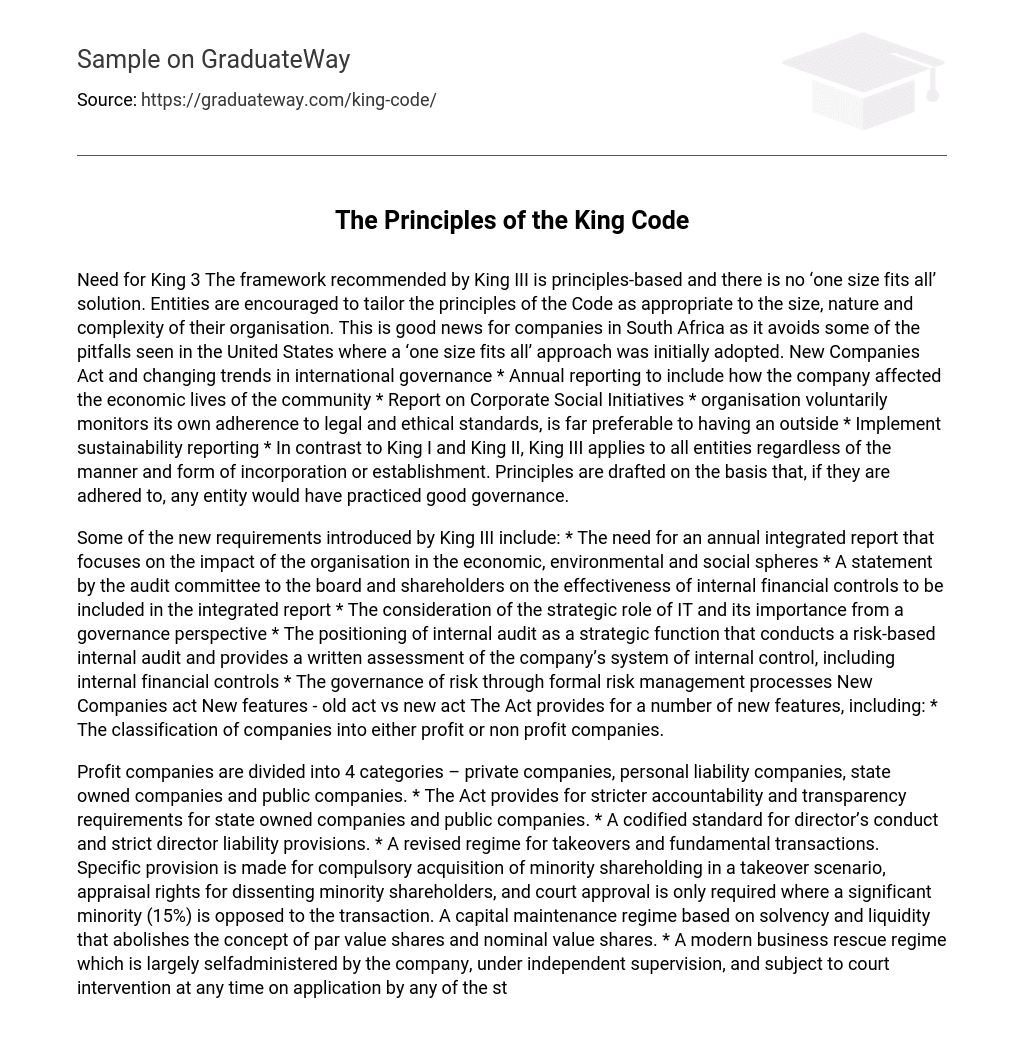Need for King 3 The framework recommended by King III is principles-based and there is no ‘one size fits all’ solution. Entities are encouraged to tailor the principles of the Code as appropriate to the size, nature and complexity of their organisation. This is good news for companies in South Africa as it avoids some of the pitfalls seen in the United States where a ‘one size fits all’ approach was initially adopted. New Companies Act and changing trends in international governance * Annual reporting to include how the company affected the economic lives of the community * Report on Corporate Social Initiatives * organisation voluntarily monitors its own adherence to legal and ethical standards, is far preferable to having an outside * Implement sustainability reporting * In contrast to King I and King II, King III applies to all entities regardless of the manner and form of incorporation or establishment. Principles are drafted on the basis that, if they are adhered to, any entity would have practiced good governance.
Some of the new requirements introduced by King III include: * The need for an annual integrated report that focuses on the impact of the organisation in the economic, environmental and social spheres * A statement by the audit committee to the board and shareholders on the effectiveness of internal financial controls to be included in the integrated report * The consideration of the strategic role of IT and its importance from a governance perspective * The positioning of internal audit as a strategic function that conducts a risk-based internal audit and provides a written assessment of the company’s system of internal control, including internal financial controls * The governance of risk through formal risk management processes New Companies act New features – old act vs new act The Act provides for a number of new features, including: * The classification of companies into either profit or non profit companies.
Profit companies are divided into 4 categories – private companies, personal liability companies, state owned companies and public companies. * The Act provides for stricter accountability and transparency requirements for state owned companies and public companies. * A codified standard for director’s conduct and strict director liability provisions. * A revised regime for takeovers and fundamental transactions. Specific provision is made for compulsory acquisition of minority shareholding in a takeover scenario, appraisal rights for dissenting minority shareholders, and court approval is only required where a significant minority (15%) is opposed to the transaction. A capital maintenance regime based on solvency and liquidity that abolishes the concept of par value shares and nominal value shares. * A modern business rescue regime which is largely selfadministered by the company, under independent supervision, and subject to court intervention at any time on application by any of the stakeholders. * The Act is characterised by flexibility, simplicity, transparency, corporate efficiency and regulatory certainty. It is drafted in plain language, and is not as detailed and prescriptive as the current Act. Companies are allowed flexibility to change certain requirements to suit their specific circumstancThe classification of companies into either profit or non profit compa





